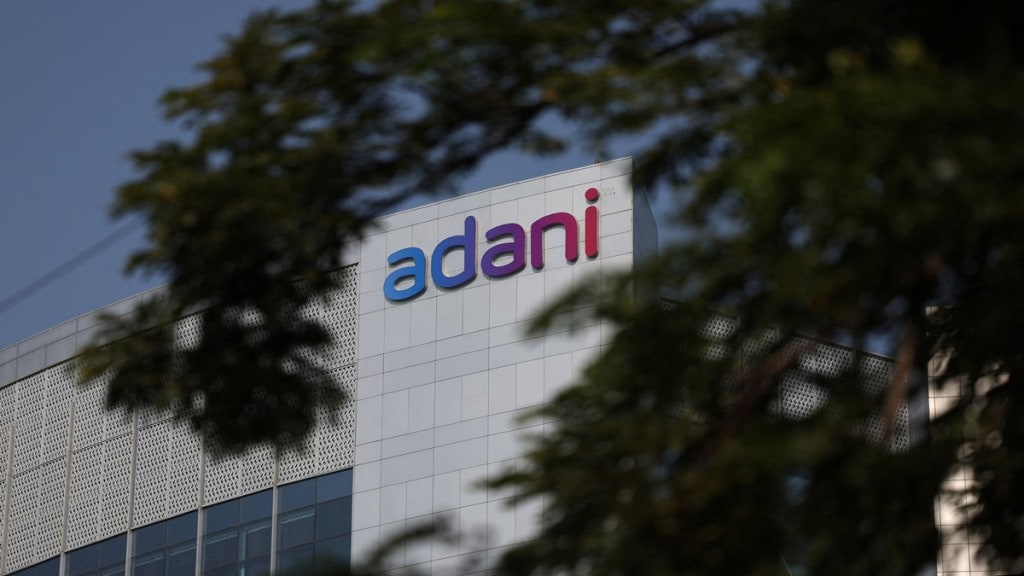Adani Energy Solutions (AESL) is looking to clock a stronger earnings before interest, taxes, depreciation, and amortisation (Ebitda) growth in the second half of this financial year versus the first half on the back of new project commissioning.
“Our H2FY26 Ebitda would see significant growth with the commissioning of at least three and possibly four transmission projects, higher capex in the distribution business (vs H1FY26), and crossing 10 million smart meter installed base,” Kandarp Patel, CEO, AESL, said during a post-earnings investor call.
The company is on track to invest Rs 17,000-18,000 crore across its businesses this fiscal. Of this, the transmission business would soak about Rs 15,000 crore, with distribution ( Rs 1,500-1,600 crore) and smart metering accounting for the rest. This capex would translate into an additional annualised Ebitda of Rs 2,800-3,000 crore, Patel said.
Adani Energy Solutions last week reported a 21% fall in its net profit for the second quarter at Rs 534 crore. In Q2FY25, the company had a one-time positive impact of deferred tax of Rs 314 crore. In like-for-like comparison, its Q2 adjusted PAT was up 21% year-on-year, it said.
In the first half of the year, the company commissioned three projects and is looking at commissioning North Karanpura, WRSR (Narendra – Pune), Mumbai HVDC and Khavda Phase-III-A (Halvad) by March 2026.
AESL’s under-implementation transmission pipeline stands at Rs 60,000 crore, and Patel said the near-term market opportunity remains robust at over Rs 90,000 crore, and the company would like to maintain its market share of 25% in new order wins.
On smart meters, the company said it has installed 1.8 million meters during the quarter, talking its installed base to 7.4 million. “We are on track to have an installed base of at least 10 million meter by the end of the year. In the next one year, bids for 100 million meters are expected to be called out from states such as Tamil Nadu, Karnataka, Madhya Pradesh, Punjab and Telangana,” Patel said.
AESL’s under-implementation smart meter pipeline stands at 25 million, comprising 10 projects with a revenue potential of over `29,500 crore.
Jefferies said in a report that the firm’s FY26-FY28 assumptions budget a ramp-up to 11 million smart meters eventually, which will need the company to win an additional 8 million smart meters in the next 12-18 months.
On centralised cooling, the company said it has signed third-party orders and is commissioning projects worth 88,000 tons of refrigeration, including India’s largest such facility in Mundra.
On its plan to expand its distribution business beyond Mumbai and Mundra SEZ regions, Patel said the company is open to both formats – privatisation and parallel licensing — to grow. It is awaiting RFQ (request for quotation) from the Uttar Pradesh government on bids for privatisation of two state discoms and has applied for a parallel licence in Navi Mumbai, Mundra Taluka, and Ghaziabad-Jewar region. If granted licence, the company will invest `10,000 crore over five years in Navi Mumbai in setting up its own infrastructure.
Cantor Fitzgerald Research said AESL continues to follow a disciplined approach to balance sheet optimisation. AESL’s Mumbai subsidiary, AEML, repurchased S$44.7 million of its remaining $300 million 3.867% bond due in 2031 as part of its strategy to lower capital costs and improve its maturity profile, it added.
“This move comes after a series of refinancing and deleveraging efforts aimed at extending debt tenors, while supporting a growth cycle that involves substantial capital expenditure. The group’s weighted average debt maturity now stands at around 7.5 years, maintaining a conservative leverage profile that allows for additional investment in pipeline projects. The company’s leverage is defined as the net-debt-to-Ebitda ratio, which is 4.4x, at the upper end of its 3.5x-4.5x target,” it said.

